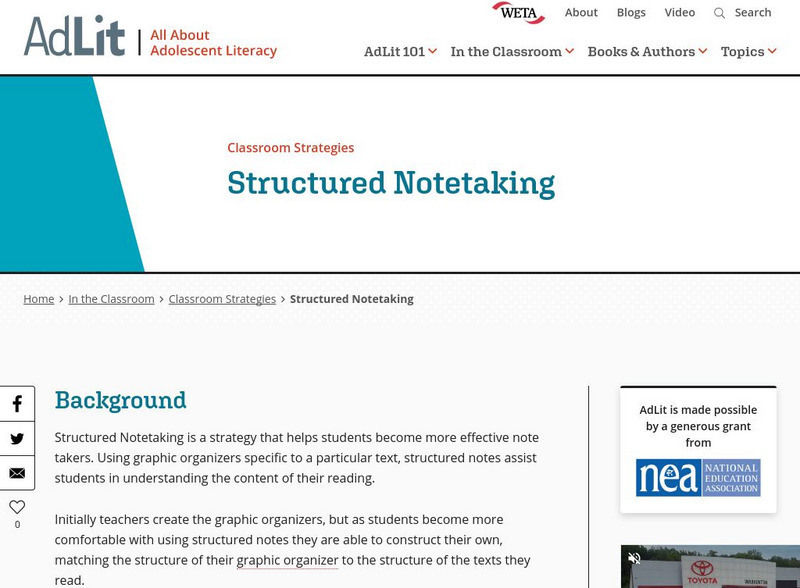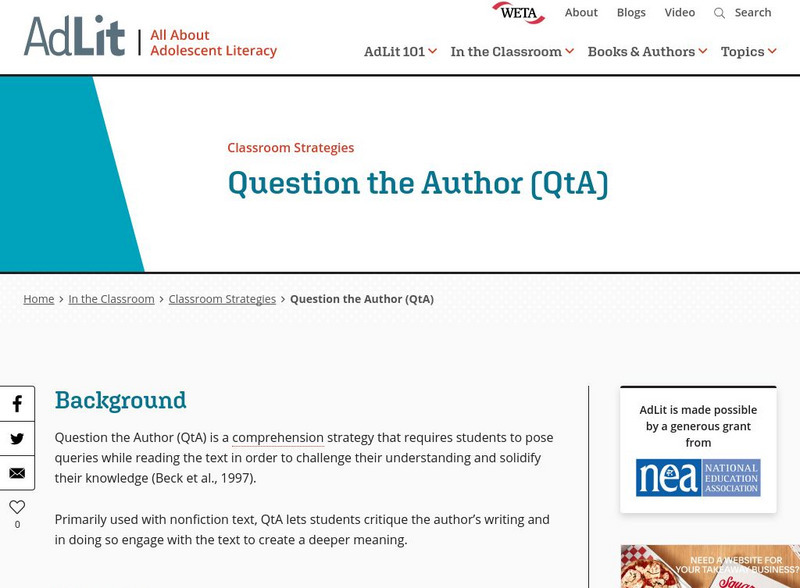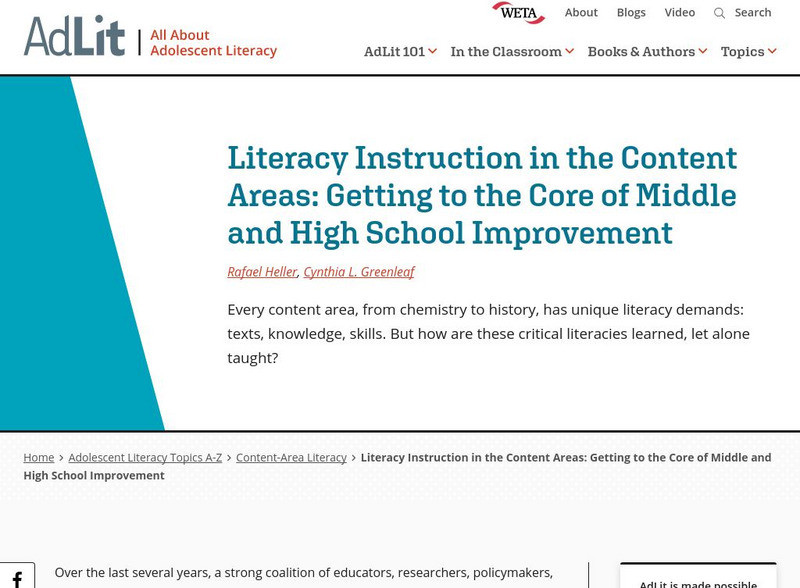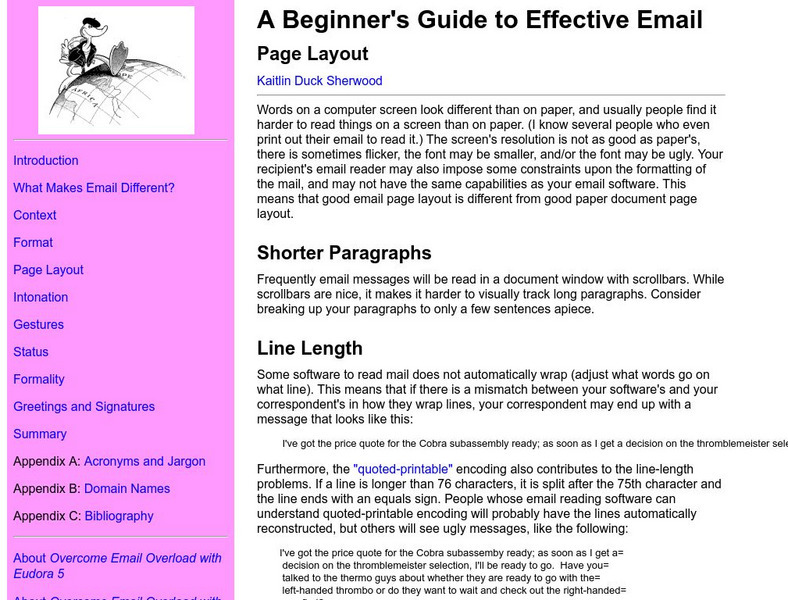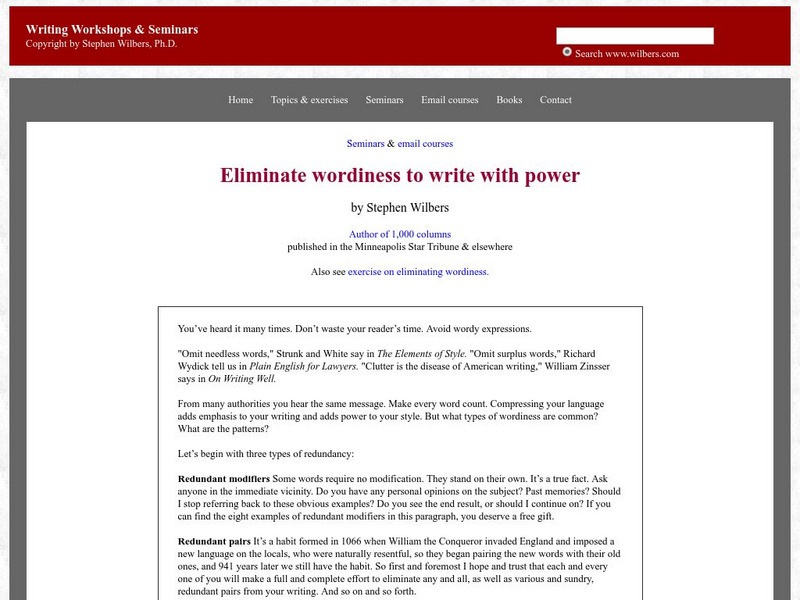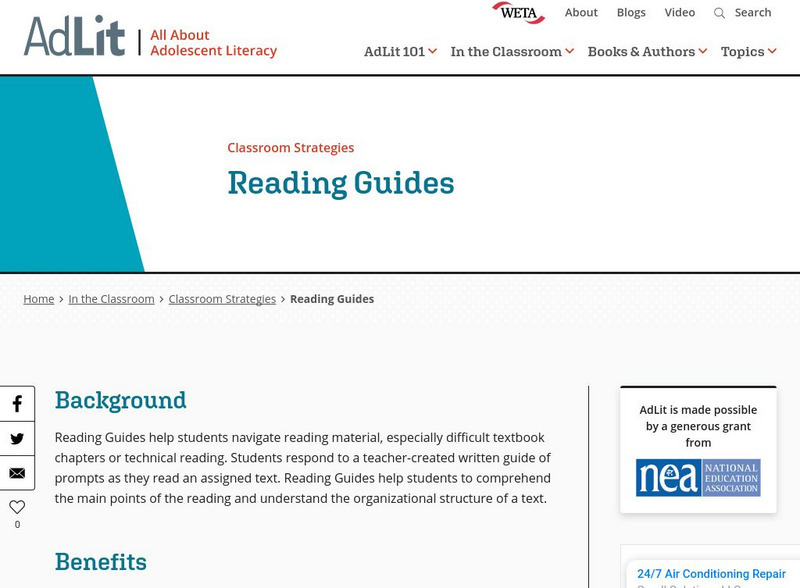AdLit
Ad lit.org: Classroom Strategies: Semantic Feature Analysis
The Semantic Feature Analysis strategy engages students in reading assignments by asking them to relate selected vocabulary to key features of the text. This technique uses a matrix to help students discover how one set of things is...
AdLit
Ad lit.org: Classroom Strategies: Structured Notetaking
Structured Notetaking is a strategy that helps students become more effective note takers. Using graphic organizers specific to a particular text, structured notes assist students in understanding the content of their reading.
AdLit
Ad lit.org: Classroom Strategies: Question the Author (Qt A)
Question the Author (QtA) is a comprehension strategy that requires students to pose queries while reading the text in order to challenge their understanding and solidify their knowledge (Beck et al., 1997).
AdLit
Ad lit.org: Literacy Instruction in the Content Areas: The Core of Improvement
Every content area, from chemistry to history, has unique literacy demands: texts, knowledge, skills. But how are these critical literacies learned, let alone taught?
SUNY Empire State College
Empire State College: How Does a Sentence Make Sense?
This resource explains importance of the agreement of elements in sentences and covers agreement of nouns, verbs, pronouns, adjectives, and adverbs. Exercises included. L.11-12.3a Syntax
Other
Webfoot.com: A Beginner's Guide to Effective Email Page Layout
This website focuses on page layout and more specifically the length of paragraphs and lines as found in emails.
Other
Writing for Business and Pleasure: Eliminate Wordiness to Write With Power
This how-to site gives writing tips for business writing. Brief explanations are provided for how to revise writing to ensure that redundant pairs, redundant modifiers, redundance categories, meaningless modifiers, and wordy expressions...
ClassFlow
Class Flow: Report Styles
[Free Registration/Login Required] Students are able to interact with the flipchart to review acceptable styles for formatting reports and letters.
ClassFlow
Class Flow: Fishcheeks
[Free Registration/Login Required] This flipchart uses journaling and other writing activities to help students develop writing and vocabulary competencies.
AdLit
Ad lit.org: Classroom Strategies: Reading Guides
Reading Guides help students navigate reading material, especially difficult textbook chapters or technical reading. Students respond to a teacher-created written guide of prompts as they read an assigned text. Reading Guides help...
Quizlet
Quizlet: Types of Supporting Details: Definitions: Learn
This interactive helps students learn the types of supporting details by having them type in the terms that fit the definitions.
Quizlet
Quizlet: Types of Supporting Details: Definitions: Flashcards
This interactive set of flashcards focuses on the definitions for types of supporting details such as statements of fact, expert testimony, first-hand accounts, personal experiences, statistics, analogies, etc.
Other
Wisewire: Domain Specific Language
Domain-specific vocabulary helps your writing sound more authoritative. This table will show you how specific vocabulary helps you knowledgeably discuss topics within a domain. Examples are provided. CCSS.ELA-Literacy.WHST.6-8.2.d



